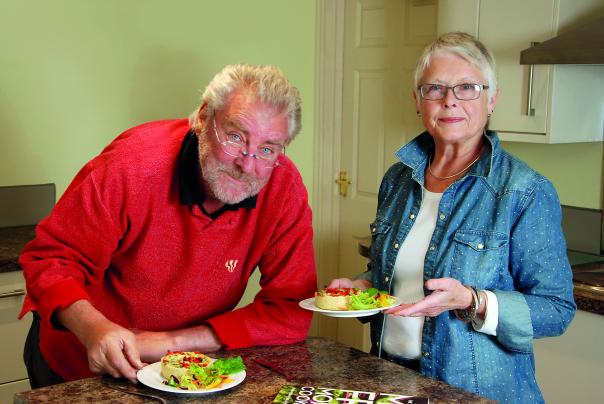
The term ‘plant-based’ has become firmly rooted in our vocabulary as people recognise the need to reduce meat and dairy consumption for health and environmental reasons. This recognition was reflected in the Government-commissioned National Food Strategy, published last year by Henry Dimbleby.
The Strategy highlights the need to improve the sustainability of the food system and reduce its environmental impact. One of its central objectives is to create a ‘long-term shift’ in food culture. It notes the government recommendation to reduce meat intake by up to 50% and emphasises the need for people to limit the consumption of animal-based products.
This resonates with the recent PSC100 Group campaign to reduce meat on public sector menus by 20%.
While not advocating that everyone becomes a vegan, the Strategy argues diets need to become more plant-based. Research shows rearing meat is both environmentally-damaging and an inefficient use of agricultural land. In the UK, 85% of land is geared towards meat and dairy production, while this constitutes just a third of an average person’s diet.
The Strategy recommends changing food production and consumption, and its ideas should be of interest to food producers too. They show the long-term concerns for food sustainability and the changes needed to tackle these issues.
The recommendations suggest new rules around food procurement, setting up community schemes and making ‘better use of the land’. With procurement, the strategy recommends setting rules and standards for food procured by the state, driving a reduction in meat and encouraging more sustainable production.
If implemented, these changes would mark a necessary shift in food consumption and production. There will be efforts to reduce meat intake and a move towards producing fewer animal products.
So how does the care sector fit into this picture? How should those that support people in later life respond to policies and strategies driving change in our food systems?
Care providers, whether care homes, domiciliary services or food delivery services, are major procurers of food. They support people who rely on care to maintain their diets and nourish themselves, so the anticipated shift in food culture needs to be considered.
Meat and animal-products may become less available; government procurement rules may impact on what state-funded care can buy; thought will need to be given to how to provide balanced diets to those receiving care.
The change in culture poses a deeper question about the role and position of older people in society because the change should affect everyone. Plans to offer community support and education around diet should not exclude those receiving care. On the contrary, this offers an opportunity for them to participate in community activities: creating links between communities around food and culture.
Those in later life have a role in the environment and a shift in food culture offers an opportunity to promote environmental inclusion.
My charity, Vegetarian for Life (VfL), which supports vegans and vegetarians in later life, is well aware of the opportunities presented by community inclusion. Our chefs deliver care caterer training and present at a variety of older people’s settings. Discussing new recipes and offering demonstrations offers people a chance to meaningfully engage in food culture and learn about diet.
But our work also raises questions about how ready the care sector is for this major shift in food culture. Our recent Inquiry Report, produced with the All-Party Parliamentary Group on Vegetarianism and Veganism, demonstrated many cases where those with ethical dietary beliefs were unable to maintain their beliefs in care. Vegan and vegetarian diets were often either misunderstood or overlooked.
Education will be needed as society moves to more plant-based food and care caterers will need to understand the diets that people follow and how to ensure good nutrition. There are is a wealth of good practice to draw from in this area. Hundreds of UK care establishments have committed to providing vegan and vegetarian food, taking the charity’s Memory Care Pledge, and becoming accredited members of the VfL UK List.
But more needs to be done to prepare the sector for change, with Sainsbury’s forecasting a quarter of the population will be vegetarian by 2025 and the Government likely to promote reductions in meat consumption. Significant change is expected to food culture and every sector needs to be prepared.
Whatever is proposed in the soon-to-be-released National Food Strategy White Paper, the strategy’s recommendations already offer an opportunity to engage with people socially and culturally around diet while promoting environmental change.